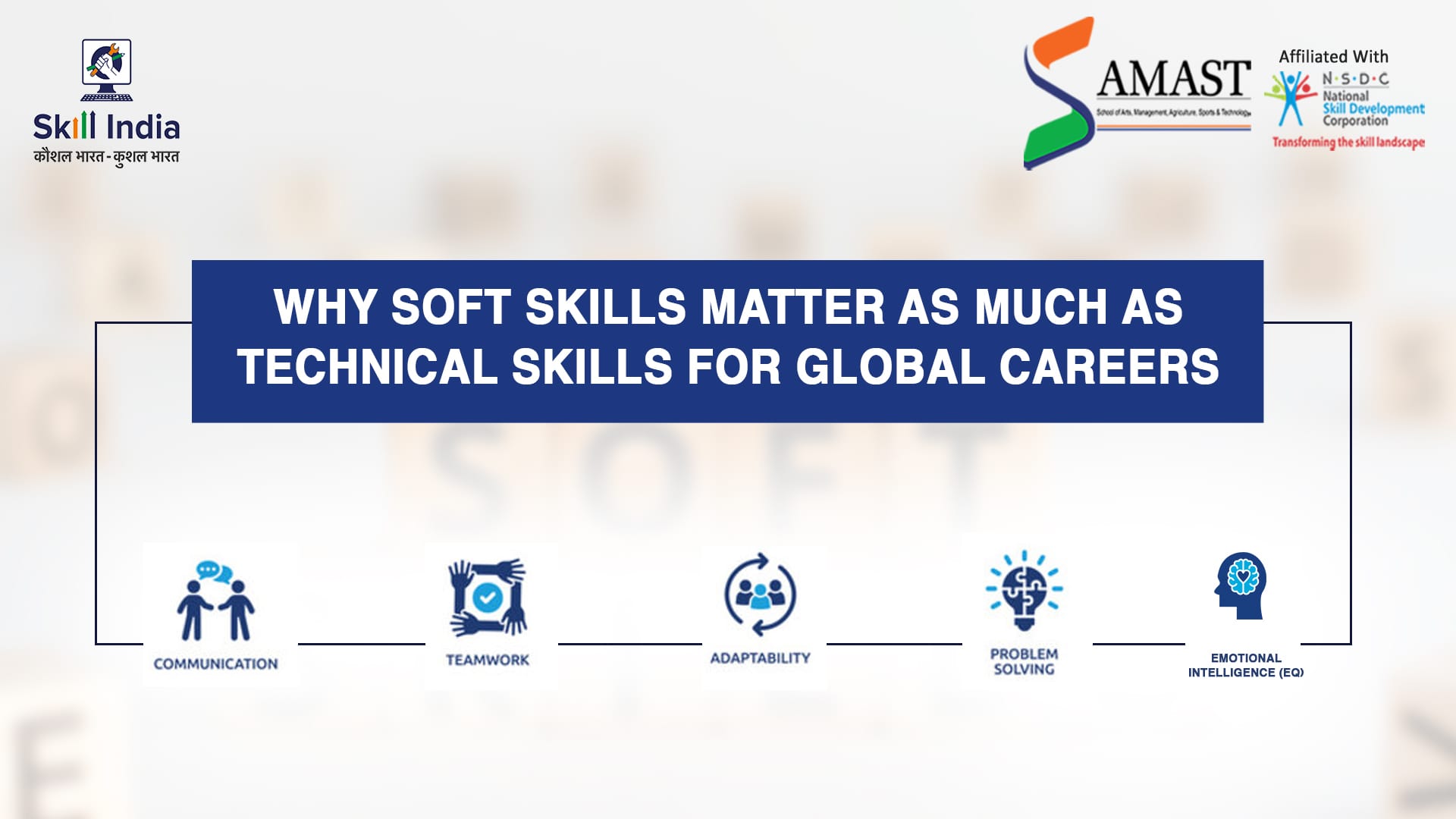
Introduction: The Changing Landscape of Global Careers
In today’s interconnected world, businesses operate across cultures, countries, and time zones. While technical expertise remains essential, soft skills have emerged as equally crucial for global career success. Professionals who can communicate effectively, collaborate across diverse teams, and adapt to dynamic environments are highly valued by employers worldwide.
This article explores why soft skills matter as much as technical skills and how developing these abilities can open doors to global opportunities.
What Are Soft Skills?
Soft skills are non-technical attributes that influence how you interact with others, handle challenges, and navigate professional environments. These include:
- Communication Skills: The ability to convey ideas clearly and listen actively.
- Teamwork and Collaboration: Working effectively with people from diverse backgrounds.
- Adaptability: Thriving in changing circumstances and learning new things quickly.
- Problem-Solving: Analyzing challenges and finding creative solutions.
- Emotional Intelligence (EQ): Understanding and managing your emotions and those of others.
1. Communication: The Foundation of Global Success
Effective communication is the backbone of any successful global career. Whether collaborating with international colleagues or addressing clients, clear and professional communication is indispensable.
Why It Matters:
- Facilitates seamless collaboration across time zones and cultures.
- Enhances the ability to present ideas and solutions persuasively.
- Builds trust and rapport in professional relationships.
How to Improve Communication Skills:
- Practice active listening to understand others’ perspectives.
- Work on clear and concise verbal and written communication.
- Learn the basics of cultural sensitivity in communication.
2. Adaptability: Thriving in a Changing World
Global careers often involve working in dynamic and unpredictable environments. Adaptability ensures you can adjust to new challenges, technologies, and cultural contexts with ease.
Why It Matters:
- Helps navigate organizational changes or relocations.
- Enables professionals to embrace innovation and continuous learning.
- Builds resilience in the face of setbacks or challenges.
How to Improve Adaptability:
- Stay open to feedback and new ideas.
- Embrace lifelong learning by updating your skills regularly.
- Cultivate a growth mindset to see challenges as opportunities.
3. Teamwork: Collaboration Across Borders
In global organizations, professionals often work with diverse teams. Teamwork involves building strong relationships, resolving conflicts, and achieving shared goals.
Why It Matters:
- Promotes inclusion and leverages diverse perspectives.
- Fosters innovation by encouraging cross-disciplinary collaboration.
- Builds a sense of community and collective achievement.
How to Improve Teamwork Skills:
- Develop active listening and empathy to understand teammates’ needs.
- Practice clear communication and conflict resolution.
- Recognize and celebrate team achievements to build morale.
4. Problem-Solving: Finding Solutions in Complex Scenarios
Problem-solving is a universal skill that becomes even more critical in global careers. Employers value professionals who can think critically and resolve issues effectively.
Why It Matters:
- Helps tackle complex, cross-border challenges.
- Builds confidence in decision-making.
- Encourages innovative thinking to address unique business needs.
How to Improve Problem-Solving Skills:
- Practice breaking problems into manageable parts.
- Use frameworks like SWOT analysis or the 5 Whys technique.
- Collaborate with others to generate diverse ideas.
5. Emotional Intelligence: The Key to Building Relationships
Emotional intelligence (EQ) involves understanding your emotions and managing relationships effectively. In a global setting, EQ helps professionals navigate cultural differences and maintain productive interactions.
Why It Matters:
- Builds strong interpersonal relationships.
- Enhances leadership and conflict resolution skills.
- Promotes empathy and understanding in multicultural environments.
How to Improve Emotional Intelligence:
- Reflect on your emotions and how they impact your actions.
- Practice active listening and empathy in conversations.
- Seek feedback from peers to improve self-awareness.
Soft Skills vs. Technical Skills: Finding the Balance
While technical skills demonstrate your qualifications, soft skills reflect your ability to thrive in a workplace. Employers often prioritize candidates who bring a balanced combination of both.
The Ideal Balance:
- Technical Skills: Showcase your expertise in specific tasks or fields.
- Soft Skills: Complement technical abilities by enhancing collaboration, problem-solving, and adaptability.
How SAMAST Helps You Build Soft Skills for Global Careers
SAMAST’s training programs integrate soft skills development with technical education, preparing professionals for success in global careers.
Key Features of SAMAST’s Soft Skills Training:
- Roleplay and Simulations: Practice real-world scenarios to build confidence.
- Cultural Sensitivity Training: Learn to navigate diverse professional environments.
- Focus on Communication and Teamwork: Gain tools to enhance collaboration and productivity.
FAQs About Soft Skills in Global Careers
Q1: Why are soft skills important for global careers?
Soft skills enable professionals to communicate, collaborate, and adapt effectively in diverse and dynamic environments, making them indispensable for global careers.
Q2: Can soft skills be developed, or are they innate?
Soft skills can be learned and improved with practice and the right training programs.
Q3: Which soft skills are most valued by employers?
Communication, teamwork, adaptability, problem-solving, and emotional intelligence are among the most valued soft skills.
Q4: How does SAMAST integrate soft skills into its programs?
SAMAST combines roleplay, group activities, and practical training to develop soft skills alongside technical expertise.
Q5: Do soft skills impact career growth?
Yes, strong soft skills often lead to better job performance, promotions, and leadership opportunities.
Conclusion: The Power of Soft Skills in Global Careers
In a world where businesses operate without borders, soft skills are as critical as technical expertise for professional success. From effective communication to adaptability and emotional intelligence, mastering these skills ensures you stand out in the global job market.
With SAMAST’s integrated approach to training, you can develop both technical and soft skills, equipping you for success in any professional setting.
Ready to elevate your career? Join SAMAST’s programs today and master the soft skills essential for global success!
Share via:
